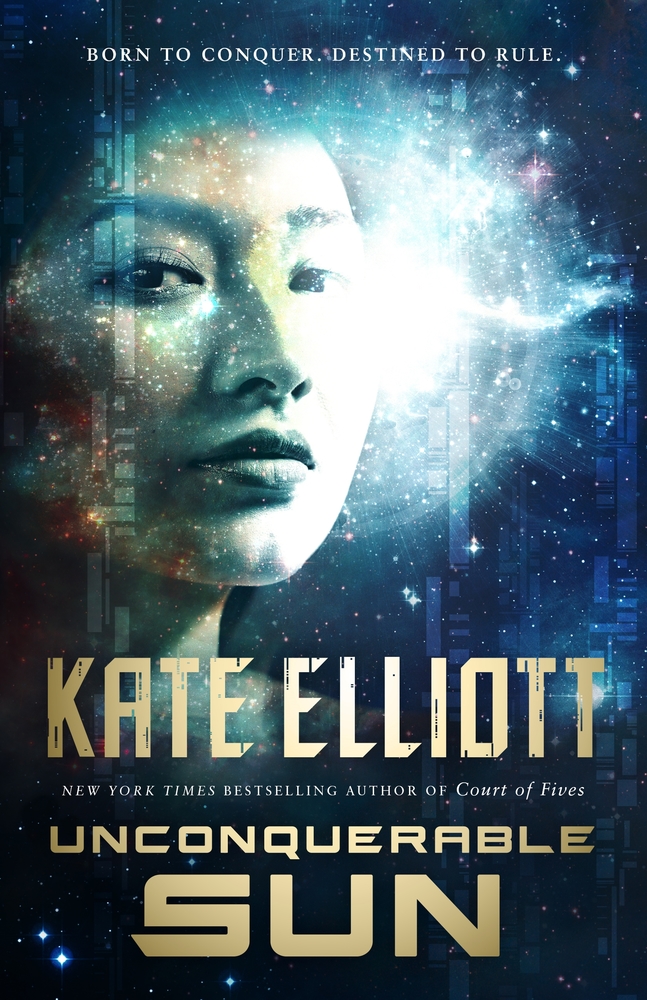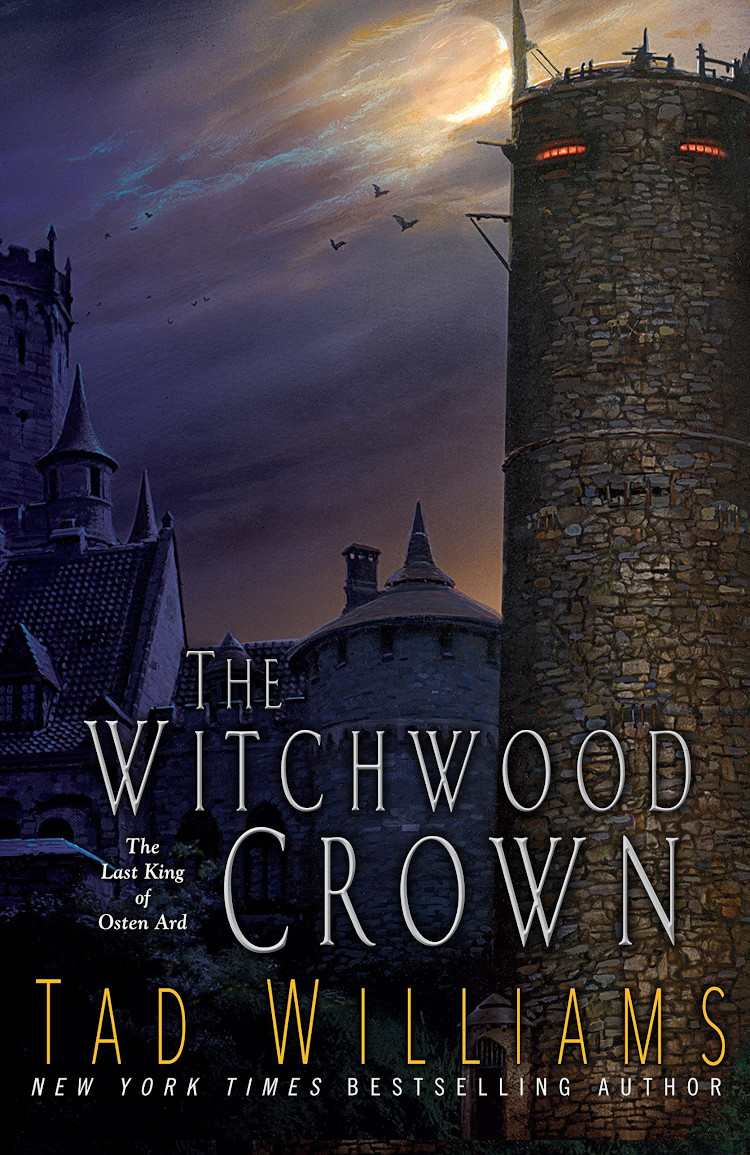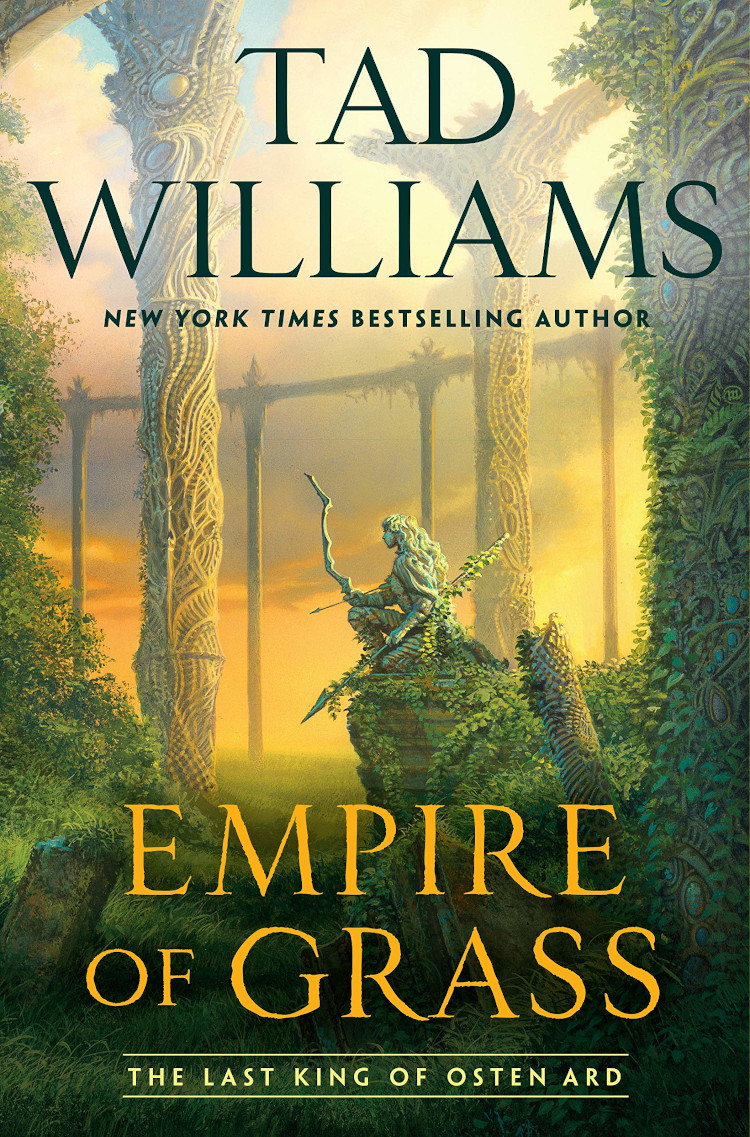Tachyon tidbits featuring Nancy Kress, John Joseph Adams, Jaymee Goh, Kate Elliott, Tad Williams, and Andrew Fox

Kate Elliott participated in a REDDIT r/fantasy AMA.
cubansombrero Reading Champion
I just read (and enjoyed) Unconquerable Sun. I’m curious about how much research you did on Alexander the Great (and ancient Greece more generally), and how you decided which aspects of your research would make it into the series? Additionally, were there any elements of history that you thought about differently or got a new perspective on when you started trying to adapt them for a gender-swapped context?
KateElliott AMA Author
Thank you! I’m so glad you enjoyed Unconquerable Sun.
I tend to do a lot of research, and I might even say I tend to do too much research because I start going down rabbit holes and tangents that interest me but which aren’t necessarily specifically germane to the project at hand. Sometimes those tangents end up in later projects.
In addition, I should point out that I began doing a fair amount of research on the Hellenistic period and Ptolemaic Egypt for the Court of Fives trilogy. I would go so far as to say that doing the research for Court of Fives is what tipped me over into deciding to do gender swapped Alexander the Great. I’ve been interested in Hellenistic history since university (I took a course in Hellenistic history back in the day), so this in a way is coming back to an early interest of mine.
Besides the usual suspects — by which I mean the Roman historians (Arrian and Diodorus more than Plutarch though) — I have tried to navigate the incredible amount of Alexander and Successor research by focusing not so much on standard biographies but on books that focus on different aspects either of AtG’s life or on aspects of Macedonian history and the Hellenistic period.
So, things like “Courts and Elites in the Hellenistic Empire” (Rolf Strootman) for a sense of how people and institutions interact in a way that wouldn’t be modern USA, which I don’t want.
Donald Engels’ Alexander the Great and the Logistics of the Macedonian Army because it talks about logistics, and in a space setting, logistics have to be considered. I mean, in any story of campaign logistics have to be considered imo, but you see what I mean.
I read several books by Frank Holt who likes to write monographs dealing with one specific aspect of AtG’s administration or conquest. They’re easy reads but also give insight into details that I can borrow from for the details that, to me, make world building really feel “real” as you’re reading.
I found Waldemar Heckel’s book on historical sources in translation useful because it is divided into “subjects” like “Alexander and Sex” or “Alexander in Bactria”
Robin Waterfield’s Dividing the Spoils on the Diadochi wars. Biographies of key figures like Lysimachus and Antigonis the One-Eyed. Like many, I will forever mourn the loss of Ptolemy’s Memoir and the other “first hand” accounts of which we really only have fragments.
I got a lot of advice from my friend Dr. Jeanne Reames who is a scholar of the court of the AtG, with a particular focus on Hephaestion, so a lot of my portrayal Hetty is influenced by her. I wanted to note that she has written a two part historical novel of Alexander in his teen years called DANCING WITH THE LION.
And so much more. But next rock.
THE COODE STREET PODCAST spends Ten Minutes with Tad Williams.
Today Jonathan spends twenty minutes with the bestselling creator of Osten Ard, Tad Williams, discussing living and working during the pandemic; researching archaeology, science, and neolithic England; the work of Hilary Mantel and the BBC adaptation of Wolf Hall, and his own forthcoming work, including a new Osten Ard short novel.
For TABLET, Andrew Fox in the essay “My Science Fiction Rabbi” discusses how the prolific writer Barry N. Malzberg showed Duncan that his passion was just Judaism in a spacesuit.
Science fiction is just Judaism in a spacesuit.
If the statement strikes you as ridiculous, consider the evidence. Both cultures began life on the margins, the domain of small and mocked minorities who looked at the world from the outside and who survived by adhering to their own intricate traditions. Both cultures are, first and foremost, an exercise in “what if,” Judaism forever looking forward to the coming of the Messiah and having its adherents pray daily for the rebuilding of the Temple, and science fiction imagining the life that lies just at the cusp of the possible. And both cultures stand at risk of being loved out of existence, embraced mightily by the mainstream, sailing precariously between the Scylla of assimilation and the Charybdis of dilution. Any Jew looking worriedly at the rising rates of intermarriage, say, knows exactly what fans of True Quill science fiction—prose science fiction written to extrapolate technological and social trends and intelligently comment on modern society—have felt since 1977, when Star Wars burst upon the screens of the nation’s multiplexes and signaled the beginning of our genre’s co-optation by the Hollywood blockbuster machine. Yes, it’s nice to be wanted—but wasn’t yesterday wonderful, when we were happily ensconced in our little shtetls, industriously studying our sacred texts, just us?


